'A recipe for stress': Psychologist details toll of working from home amid coronavirus
The coronavirus pandemic has an obvious physical impact — over 60,000 people in the U.S. have tested positive for COVID-19, and more than 1,000 people have died so far in the country — but there are also psychological effects as well.
In states like New York and California, 100% of the workforce is expected to work from home unless deemed essential. And while isolation measures are crucial for flattening the curve and containing the spread of the virus, the circumstances negatively affect mental health.
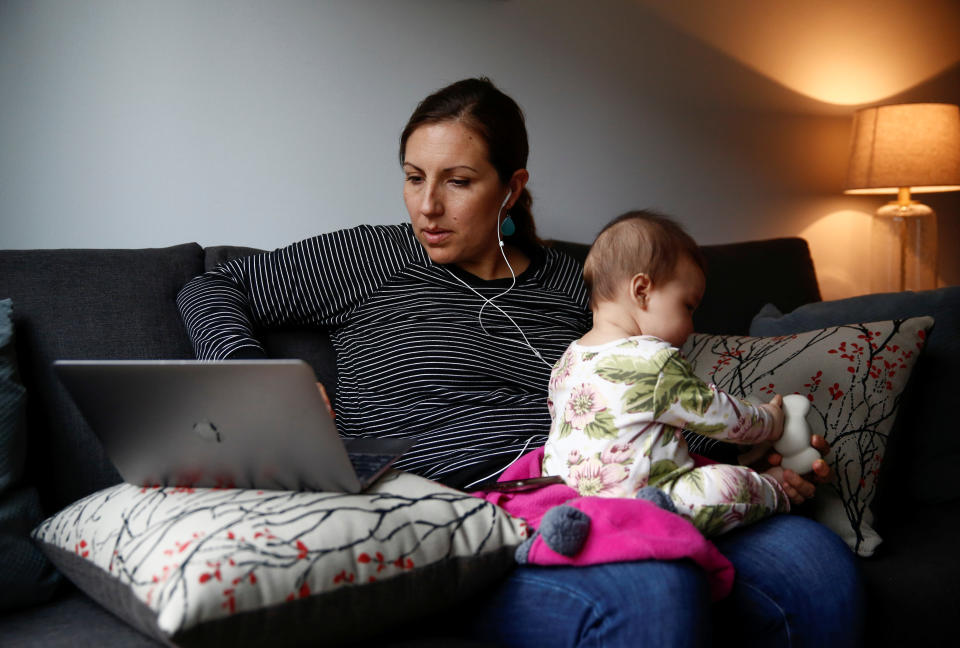
“There’s no trial period here for a lot of people in organizations,” Cathleen Swody, an organizational psychologist at Thrive Leadership, told Yahoo Finance. “All of a sudden, there’s been a drastic change from working in an office to working at home. And that can lead to social isolation, sadness, boredom. Our routines go out the door. All of these things that we’re used to, disappear.”
Swody continued: “Especially given the context of a lot of uncertainty, ambiguity, we don’t know how long it’s going to last. We don’t know how bad it’s going to get. That’s a recipe for stress, and that leads to physical and psychological health concerns.”
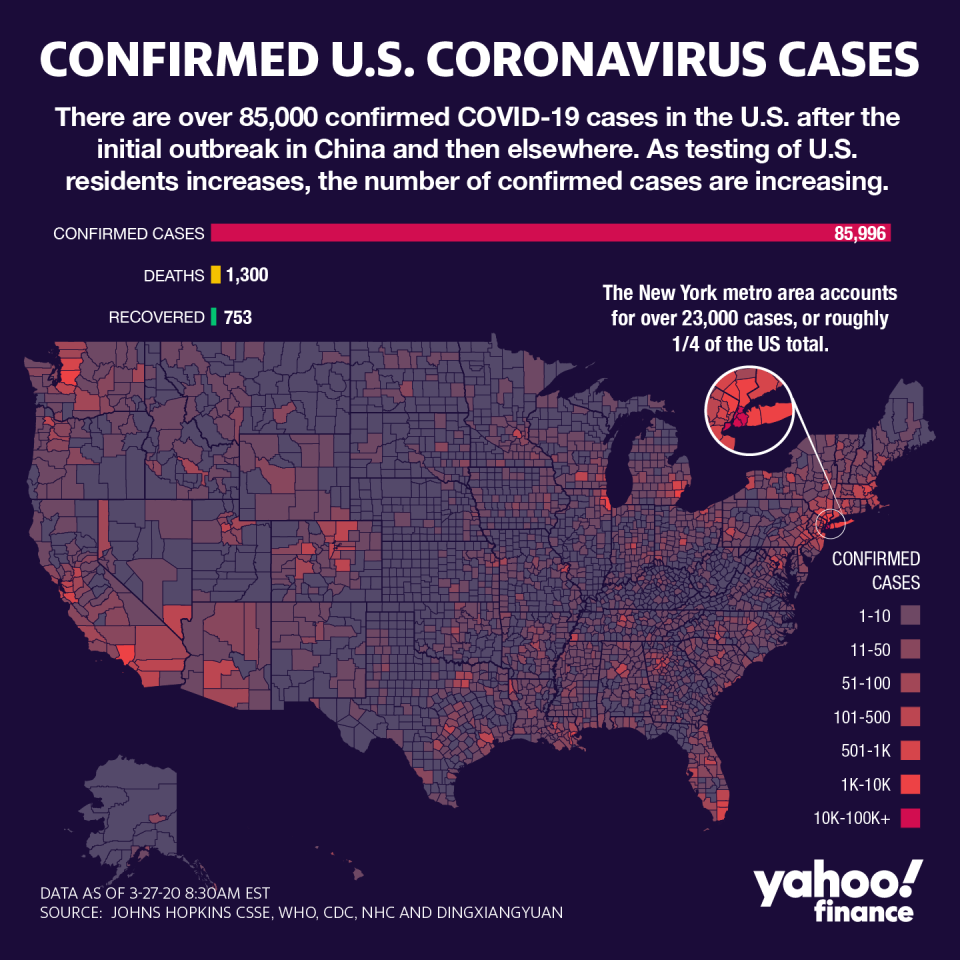
‘August, could be July, could be longer than that’
The U.S. has seen an increasing number of coronavirus cases since the first case back in January. New York City has become the country’s epicenter of the pandemic while other states are following at varying levels of spread.
It still isn’t clear when the pandemic and ensuing restrictions will come to an end. At one press conference, President Trump said that experts “think August, could be July, could be longer than that.” However, at a subsequent press conference, the president asserted that the social distancing measures could be loosened soon — by Easter Sunday, April 12 — to help the economy.
I’m worried about emerging situations in New Orleans, Dallas, Atlanta, Miami, Detroit, Chicago, Philadelphia, among others. In China no province outside Hubei ever had more than 1,500 cases. In U.S. 11 states already hit that total. Our epidemic is likely to be national in scope. pic.twitter.com/jfN6YYRT07
— Scott Gottlieb, MD (@ScottGottliebMD) March 27, 2020
The ongoing uncertainty is an added psychological pressure.
“This is definitely going to impact people’s mental health,” Saltz said. “They’re not only home, but they’re home under scary circumstances. They may have lost a lot of the structure of their day that they typically have. They’re together with people — their family — but in the setting of being more anxious to get on each other’s nerves.”
She added that if family dynamics become “frayed, that stresses people further. As their finances are concerning, that increases anxiety as well. And over time, the social isolation from others can really impact not only anxiety, but mood.”

Brad Klontz, a financial psychologist and associate professor at Creighton University, compared it to retirement.
“They go to work every day and all of a sudden, now they’re not,” he told Yahoo Finance. “And that could put a stress on relationships, too. All of a sudden you’re together all the time, which can be great, but sometimes it’s not.”
Klontz explained that people have an “equilibrium” in their relationships, and that situations like these disrupt it.
“It can go one of two ways,” Klontz said. “Either people can use it as an opportunity to grow closer, or it becomes a source of conflict and leads to more estrangement.”
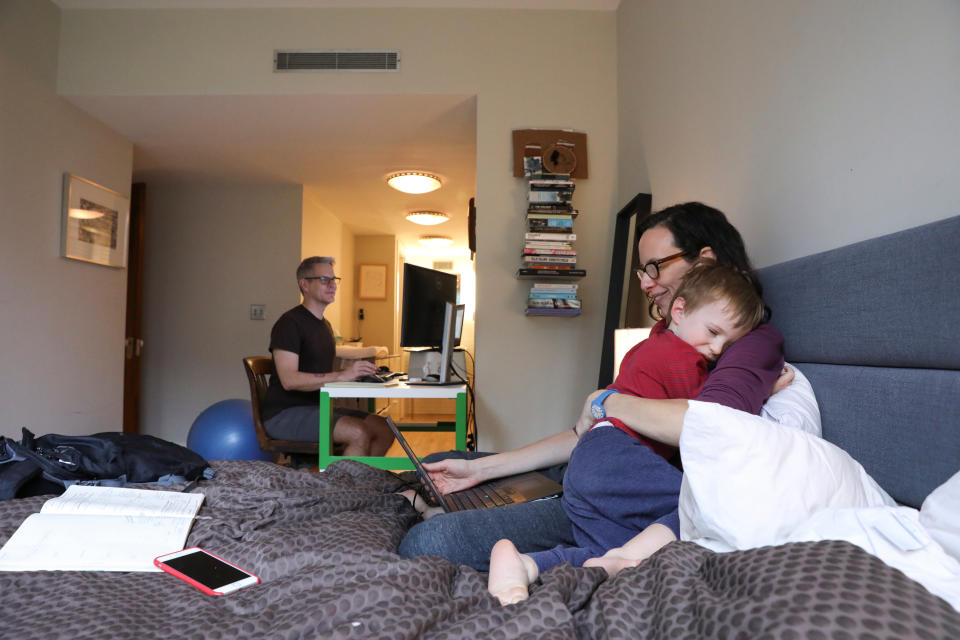
‘A hit’ to productivity and performance
Aside from the psychological aspects, Swody said, being forced to work from home in these circumstances could hamper productivity.
“It’s interesting because I think when people volunteer to work from home, they actually tend to be more productive,” she said. “‘I want to keep this the way it’s going. Let me demonstrate it.’ Right? Especially for people who perhaps are a little bit more introverted, or for people who really need to focus because of the nature of their work.”
For those who write, Swody said this could potentially open up “a new realm” of productivity because of the solitude. But for a lot of jobs, there will be “a hit” to productivity and performance.
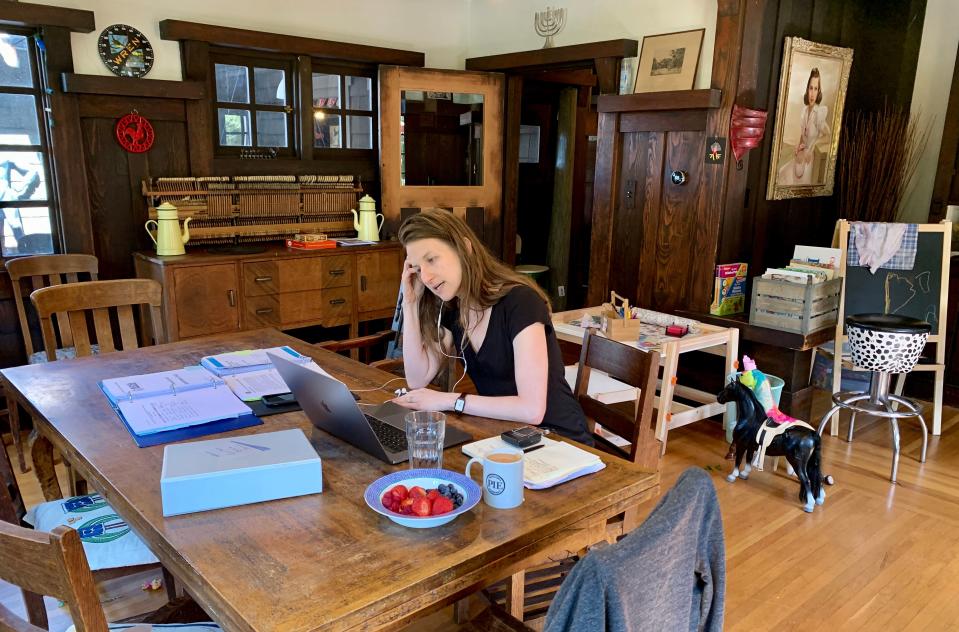
“A lot of us have been forced into this situation very suddenly without a lot of time to process the shift from working in an office to working from home,” she said. “And a lot of creativity and productivity come from working with other people in an office. ... I’m working by myself and I’m not having the chit-chat in the hallway with my co-worker and then calling my boss over being like, ‘Hey what do you think about this?’ I’m working in a vacuum. And so the end product may not be as good. So I might have to go back and do it over again, which destroys my productivity.”
Another barrier to productivity is the natural distraction of family members in close quarters. Futhermore, whether or not people realize it, is the consumption of news and social media related to coronavirus.
“In times of stress, that’s what we do,” Swody said. “A lot of people are absorbing a large volume of information, and that can be distracting too.”
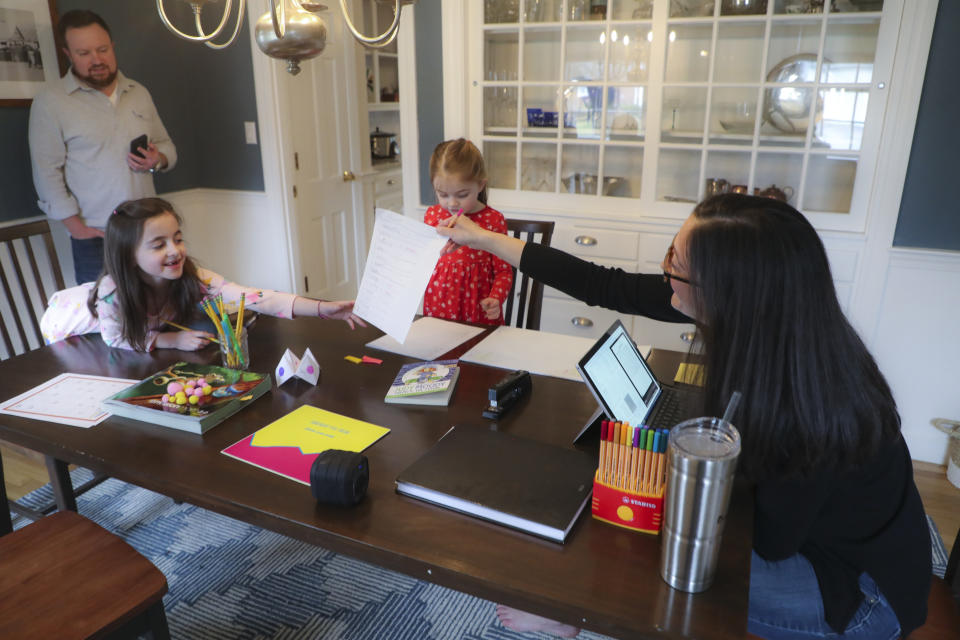
‘Communication is more important than ever’
Although there are unique circumstances behind this particular work-from-home situation for Americans, Swody shared some of her best tips for both managers and their employees.
For managers, “communication is more important than ever,” she said. “And no matter how busy you are as a boss, those regular touchpoints are so important. Taking time out to talk to each individual on your team on a regular basis is important. By regular, I mean daily, every other day. Have a regular checkpoint where you can just talk to people, give them some room to talk about what’s going on at home.”
She continued: “Just give people a moment to be human and not just be a robot. People really need that social connection. And to go along with that, get the group together. Find a way to get the group together virtually, and if possible, some type of video conferencing.”
Swody suggested a virtual happy hour or something “with that water cooler vibe” so that people don’t feel “like robots” and can still maintain “some semblance of “human-to-human connection.”
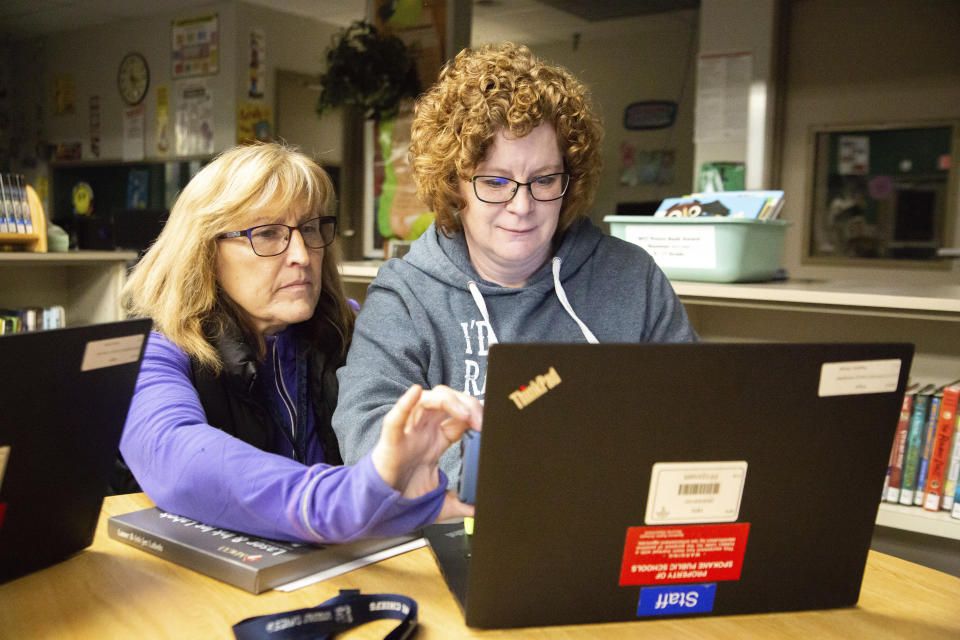
As for individual employees, aside from good communication as well, Swody stressed that “routine is our friend.”
“Routine is good,” she said. “Psychologically, we’re just such creatures of habit and it’s so ingrained in us. As much as we’d like to stay in our pajamas all day and work from our bed, that may not be best for our health long term, psychologically or physically.”
She suggested making sure you shower, change your clothes (even if it’s daytime pajamas), and “cue the brain” to remind yourself to focus and get work done.
“I’d also recommend you’ve identified a time where you’re going to step away from the laptop, because a lot of people who work from home have a hard time doing that, and then you don’t get that break from work and home, and it just all blurs together, and that’s not good for us psychologically either,” Swody said. “We need to have a little bit of distance. So being able to disengage at the end of the workday too is really healthy. And then we can change back into our pajamas. That’s really good for maintaining our well-being.”
Adriana is a reporter and editor for Yahoo Finance. She can be reached at [email protected]. Follow her on Twitter @adrianambells.
READ MORE:
Coronavirus: ER doctor details 'travesty' of ill-equipped health workers
'Be patient': Public health expert urges people to trust social distancing amid coronavirus outbreak
Former CDC official on coronavirus: The government response needs to catch up with the crisis
Read the latest financial and business news from Yahoo Finance
Follow Yahoo Finance on Twitter, Facebook, Instagram, Flipboard, SmartNews, LinkedIn, YouTube, and reddit.
